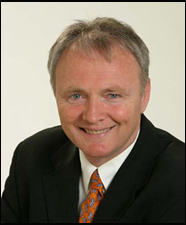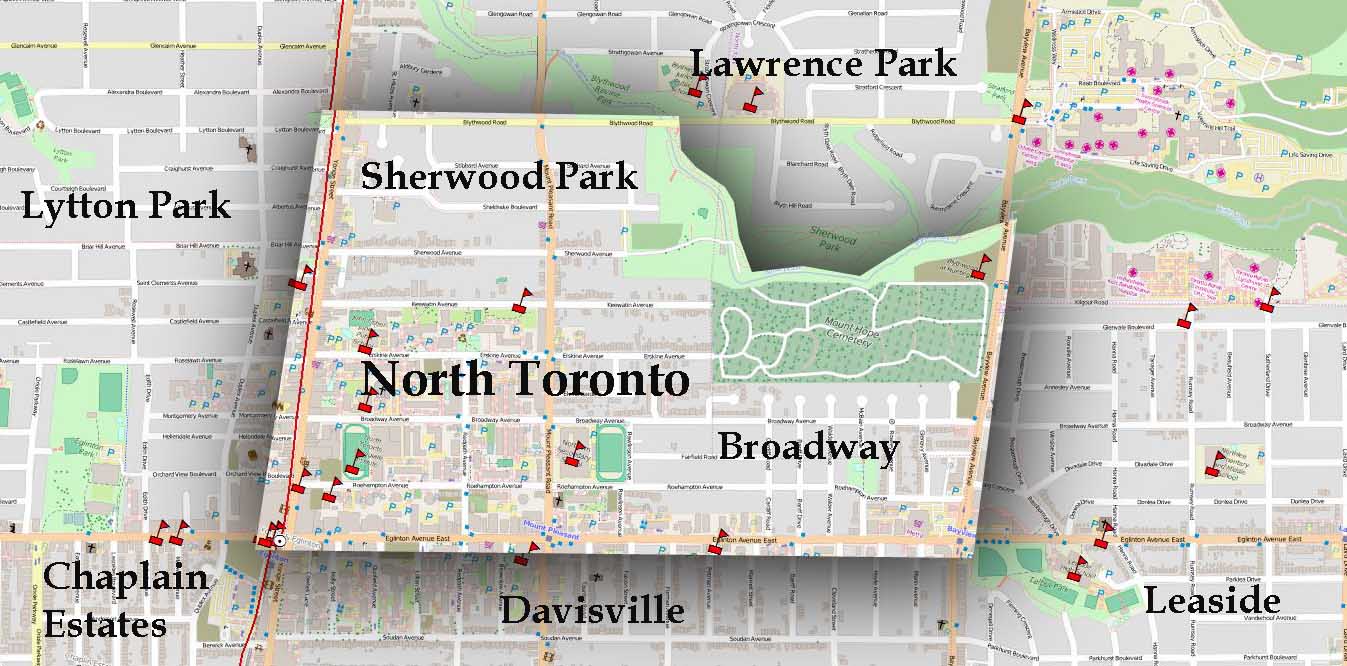Home
Current Listings
Recent Sales
For Sellers
Home Valuation
For Buyers
North Toronto
Lawrence Park
Davisville
Annual Sales
Market Watch
Bosley Real Estate
MLS Zone Map
Resource Centre
Realtor.ca
email Adam
Welcome to Life in North TorontoNorth Toronto is a centrally located Toronto neighbourhood. From a "home ownership" perspective the area is extemely popular with upscale young families and established couples, who purchase detached or semi-detached houses, or condos in the area. There exists a healthy stock of apartment buidlings, adding to the density, vibrance and diversity of the area. Proximity to several excellent schools enhances the desire to locate here. There are numerous condo buildings in the area catering to, and popular with singles, couples accummulating equity and empty-nesters alike. The North Toronto neighbourhood is known for excellent recreational facilities, outstanding shopping, active nightlife and a great selection of restaurants.
Annual Activity - Compare 2018 to the previous 5 years.
North Toronto and Sherwood Park are partially defined by the vibrance of Yonge Street, Bayveiw Ave, Mount Pleasant Rd, Eglinton Ave East, Blythwood Ravine and the ravine of Sherwood Park.
The town of North Toronto was incorporated in 1890. It was formed as the result of an amalgamation between Davisville Village, Eglinton Village, and Bedford Park Village. At the time of its incorporation, North Toronto was primarily an agricultural farming community. However, large parcels of land in North Toronto were already subdivided, and were being held by speculators.
The actual building of houses in this area began in the 1890's, when the Metropolitan Street Railway, made North Toronto the northernmost stop on its five cent line from downtown Toronto.
By the early 1900's, North Toronto had emerged as one of Toronto's most popular commuter suburbs. However, frustrated by the poor level of municipal services being offered by the Town, North Toronto residents voted in favour of Annexation to the City of Toronto on December 15, 1912. North Toronto filled in quickly after annexation and was completely developed by the 1940's.
When the expanded Toronto Mega City was formed in 1998 the North Toronto neighbourhood went from being located at the north end of the old city to occupying a central location within the new city boundaries. Despite these changes North Toronto's identity as a neighbourhood endures.
North Toronto is especially popular with families raising school-age children. It has everything families are looking for in a neighbourhood including good size houses, an excellent selection of public, private and separate schools, convenient access to Toronto's transit system, and a multitude of parks and recreational facilities.
Yonge & Eglinton: An Urban Growth Centre
The Province of Ontario has identified five Urban Growth Centres in the City of Toronto. They are: Downtown/Waterfront, Scarborough Centre, North York Centre, Etobicoke Centre, and Yonge-Eglinton.
Yonge-Eglinton in North Toronto has been identified as such thanks to its excellent public transit access where jobs, housing and services are all concentrated in a dynamic, mixed-use setting.
Yonge and Eglinton — affectionately referred as “Young and Eligible” — has been an important intersection for over a hundred years. This area was originally part of Eglinton Village, which amalgamated with Davisville Village to the south and North Toronto to the North to form the Town of North Toronto in 1890. The Town of North Toronto was annexed by the City of Toronto in 1912.
The City of Toronto planning division has identified the Yonge and Eglinton intersection as having potential for new development through infill and redevelopment of key sites, including the TTC Eglinton Bus terminal lands. Lower-scale development along Eglinton Avenue further from the intersection is also planned; mixed-use residential with street-level retail is recommened. The subway station is also slated for improvements, as is an overall enhancement of the streetscape.
The northwest quadrant of the Yonge-Eglinton intersection is occupied by the Yonge Eglinton Centre, a mixed-use retail and office complex built in the 1970s that has long been a landmark and pillar in the North Toronto community.
The Northeast quadrant of Yonge-Eglinton has more of a main-street village feel with two-storey commercial buildings. One larger building with a set-back for an open-space pedestrian square has been suggested for this corner.
The southeast quadrant has already been transformed by the recently built Minto Midtown project, which consists of two residential towers with retail. The open space between the two buildings is designed to improve pedestrian space in the area.
The southwest quadrant is largely occupied by the TTC Eglinton bus terminal lands, which the city has targeted for public realm improvements, better public transit infrastructure and new park space.
The proposed redevelopment of Yonge-Eglinton marks a shift in attitudes towards city planning with a new focus on sustainability and an opportunity for city building that will create new homes and jobs as well as improve the public realm. The implementation of this plan will help to ensure that Yonge-Eglinton remains a vibrant and successful focal point of Toronto.
North Toronto, Sherwood Park and Broadway is one of Toronto’s most vibrant locations.
courtesy of www.torontoneighbourhoodnews.com
Local Schools:North Toronto Collegiate Institute
Toronto French School
Northern Secondary School
Eglinton Junior Public SchoolSt Monica Seperate School - TDCSB
John Fisher Public SchoolThere is TTC bus service on Mount Pleasant Road, Yonge Street, Davisville Avenue and Eglinton Avenue. These bus routes connect passengers to the Yonge-University-Spadina subway line. The Davisville and Eglinton subway stations are within an easy walking distance of this neighbourhood. This area offers motorists quick access to downtown Toronto via either Bayview Ave, Mount Pleasant Road or Yonge Street. Toronto's highways and expressways are located within a very short drive of Davisville Village.
© COPYRIGHT 2009 ALL RIGHTS RESERVED www.davisville.biz
  |

